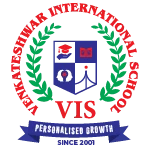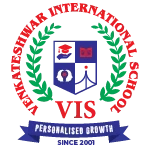In today’s fast-paced and competitive world, students are not just learners—they’re multitaskers, innovators, artists, athletes, and dreamers. They juggle academics, extracurriculars, hobbies, and social life, often struggling to find that perfect balance. The key to thriving in this dynamic environment lies in one powerful skill: effective time management.
As parents and students look ahead to the next academic year, school admission becomes a time of evaluation—not just of academic reputation but also of how well a school equips its students for holistic growth. Schools like Venkateshwar International School understand that empowering students with time management strategies is as important as teaching them equations or grammar rules.
In this blog, we’ll explore effective time management tips that help students strike the right balance between studies and extracurricular passions—whether that’s coding, debate, cricket, or art. If you're a parent or student planning your next academic move, keep reading for valuable insights and why VIS might be the future-ready choice you're searching for.
Why Time Management Matters More Than Ever
Students today are exposed to far more opportunities than ever before. From robotics clubs and music classes to sports tournaments and leadership camps, the options are endless. While this tiered exposure enriches development, it also requires a clear sense of priority and planning. Without a strategy, students may feel overwhelmed or underperform in areas where they could otherwise shine.
This is where time management for students plays a crucial role—it’s the bridge that connects potential to performance. It ensures that energy is directed efficiently, allowing students to excel without burning out.
1. Set SMART Goals
Every great plan begins with a clear goal. Encourage your child to set SMART goals—Specific, Measurable, Achievable, Relevant, and Time-bound. For instance, instead of “I want to do better in math,” try “I will solve 5 extra problems every evening to improve my math score in the next test.”
At VIS, goal-setting is integrated into the forward-thinking curriculum. Students are guided to identify their strengths and work towards personalized targets, ensuring that growth is meaningful and measurable.
2. Create a Balanced Schedule
A well-planned schedule is a student’s best friend. Use planners or digital tools to map out daily activities. Include everything—classes, revision, extracurriculars, meals, and rest. Avoid overscheduling. A good rule is the 50/30/20 ratio: 50% academics, 30% hobbies/extracurriculars, and 20% rest and recreation.
Schools like VIS support this balance through tech-empowered platforms and apps that help students and teachers track performance and progress with real-time data.
3. Prioritize Tasks with the Eisenhower Matrix
Teach your child the Eisenhower Matrix to distinguish between what's urgent and what's important. Tasks fall into four categories:
- Urgent and Important – Do it now.
- Important but Not Urgent – Schedule it.
- Urgent but Not Important – Delegate if possible.
- Neither – Drop it.
This method promotes personalized growth by helping students focus on long-term success rather than just short-term pressure.
4. Avoid Multitasking
Multitasking may seem efficient, but it often reduces productivity and increases mental fatigue. Encourage students to focus on one task at a time. Deep work, especially during study time, results in better understanding and retention.
This is something VIS emphasizes through its future-ready infrastructure—learning environments designed to foster focus, creativity, and calm.
5. Use the Pomodoro Technique
This simple yet effective method improves concentration. It involves 25 minutes of focused work followed by a 5-minute break. After four cycles, take a longer break. It’s perfect for homework, reading, or even practicing the piano.
The Pomodoro Technique builds discipline, which is critical in a school that believes in wellness & personal development as much as academic achievement.
6. Learn to Say No
It’s important for students to recognize their limits. Saying yes to every opportunity might sound exciting, but it can lead to burnout. Time management also means protecting your peace.
At VIS, students are taught the art of choosing quality over quantity—a skill that leads to individual results without compromising wellness.
7. Break Big Tasks into Smaller Steps
Big projects can feel intimidating. Breaking them down into bite-sized tasks makes them manageable and less stressful. For instance, if a student has to give a presentation, they can split it into: research, draft, design, and rehearse.
This method aligns well with VIS’s tiered exposure model, where learning and achievement progress step-by-step through layered experiences.
8. Reflect and Review Weekly
Reflection is a powerful learning tool. Encourage students to review their week—what went well, what didn’t, and what can improve. This practice builds self-awareness and accountability.
Schools like VIS foster this habit through regular mentorship sessions and student-led assessments, rooted in a culture of extrapowerment—where students are empowered to take charge of their learning.
9. Build in Time for Rest and Play
Time management isn’t just about packing every moment with tasks. It’s about balance. Sleep, exercise, and downtime are critical to brain function and emotional well-being.
VIS integrates wellness & personal development into the school day through mindfulness sessions, hobby clubs, and inclusive sports programs—proving that rest isn’t a luxury, it’s a necessity.
10. Surround Yourself with the Right Environment
A student’s environment significantly influences their time habits. Being in a tech-empowered, supportive, and future-oriented school builds a culture of productivity and purpose.
Venkateshwar International School leads by example. With a forward-thinking curriculum, cutting-edge tools, and a commitment to individual growth, it ensures every student has the opportunity to shine—academically, socially, and emotionally.
Why Time Management Skills Matter for School Admission
When it comes to school admission, parents often focus on exam results and infrastructure. But true excellence lies in a school’s ability to nurture well-rounded, future-ready individuals.
VIS doesn’t just prepare students for board exams—it prepares them for life. From personalized growth paths to extracurricular excellence, from infrastructure designed for the future to a curriculum that prioritizes student agency, everything is geared towards creating confident, capable, and compassionate global citizens.
Final Thoughts
Mastering time management for students is not about cramming more into a day—it’s about making space for what truly matters. With the right habits, the right mindset, and the right school, students can excel in academics while also exploring passions and building life skills.
If you're considering the next step in your child’s academic journey, think beyond textbooks. Think about balance, creativity, purpose—and choose a school that champions all of it.
Choose Venkateshwar International School—where education isn’t rushed, it’s future-ready, personalized, and empowering in every way.


